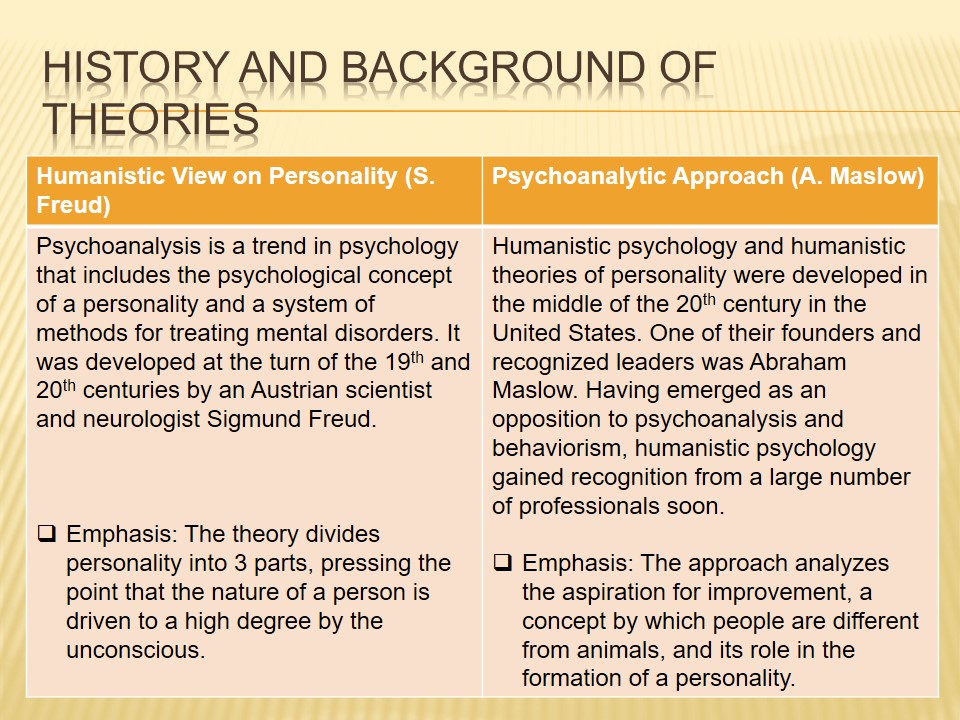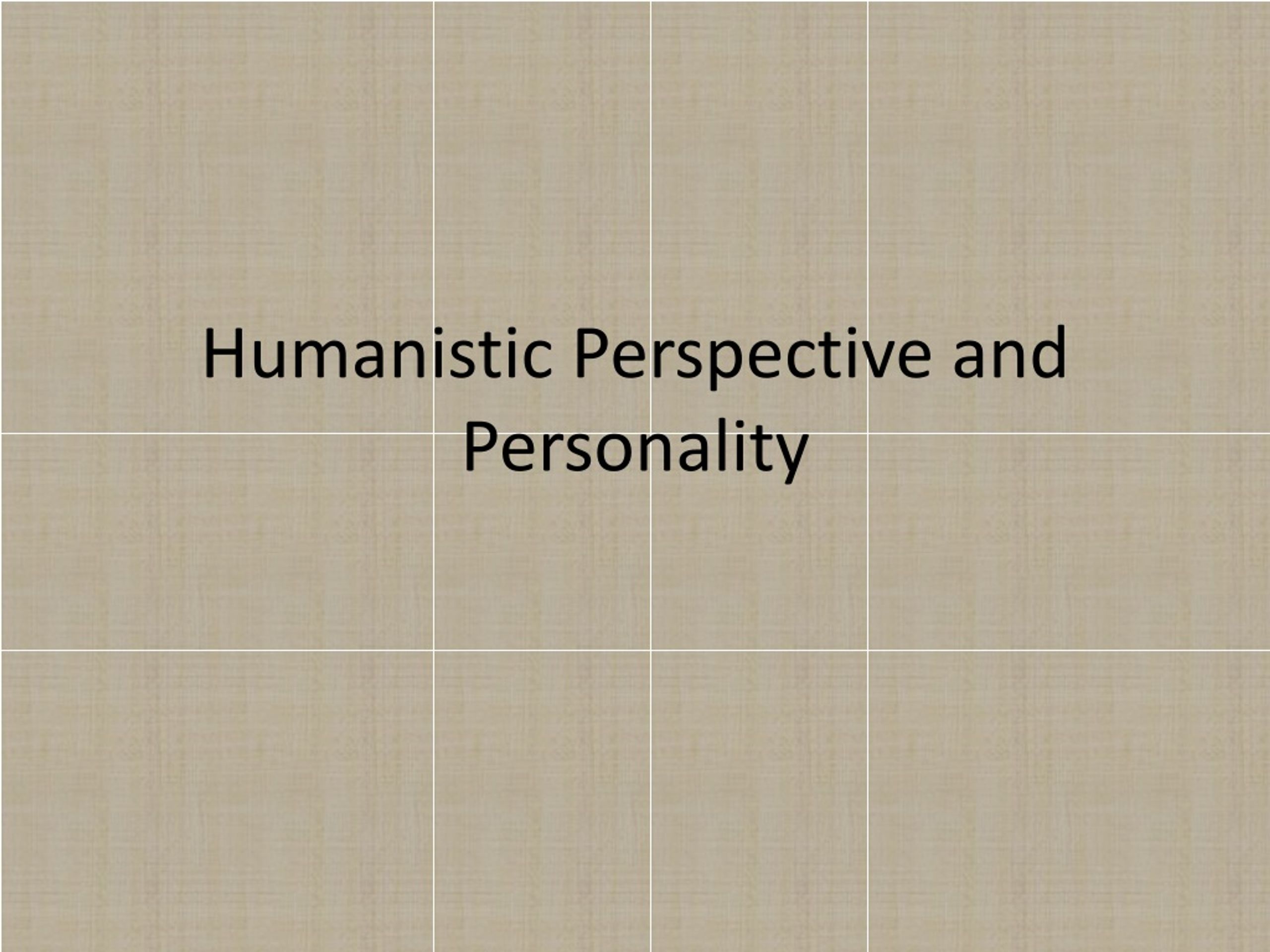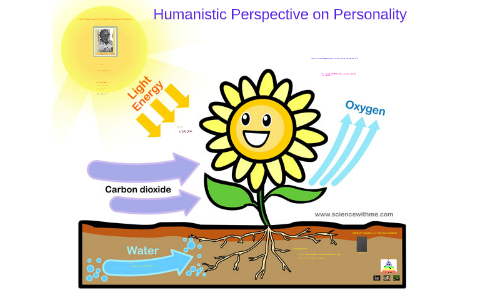The humanistic perspective of personality is a psychological approach that emphasizes the unique qualities of each individual and their inherent drive towards self-actualization. This perspective views the individual as being capable of making their own choices and decisions, rather than being determined by external factors or unconscious drives.
According to humanistic psychologists, each person has the potential to reach their full potential and become their best selves. This potential is known as self-actualization, and it is the ultimate goal of humanistic psychology. In order to reach self-actualization, individuals must be able to express their true selves and fulfill their personal desires and needs.
One of the key figures in the development of the humanistic perspective of personality was Abraham Maslow, who proposed a hierarchy of needs that must be met in order for an individual to reach self-actualization. These needs include basic physiological needs, such as food and shelter, as well as safety, love and belonging, and self-esteem. Once these lower-level needs are met, individuals are able to focus on achieving their full potential and self-actualization.
The humanistic perspective also emphasizes the importance of free will and personal responsibility. According to this perspective, individuals have the ability to make their own choices and are responsible for the consequences of those choices. This belief in personal responsibility allows individuals to take control of their own lives and make the most of their potential.
In addition to self-actualization and personal responsibility, the humanistic perspective of personality also places a strong emphasis on subjective experiences and the role of personal meaning in an individual's life. According to this perspective, each person has their own unique experiences and interpretations of the world, and these experiences and interpretations play a significant role in shaping their personality.
Overall, the humanistic perspective of personality offers a hopeful and empowering view of the individual. It emphasizes the potential for personal growth and self-actualization, and encourages individuals to take control of their own lives and make the most of their potential.






